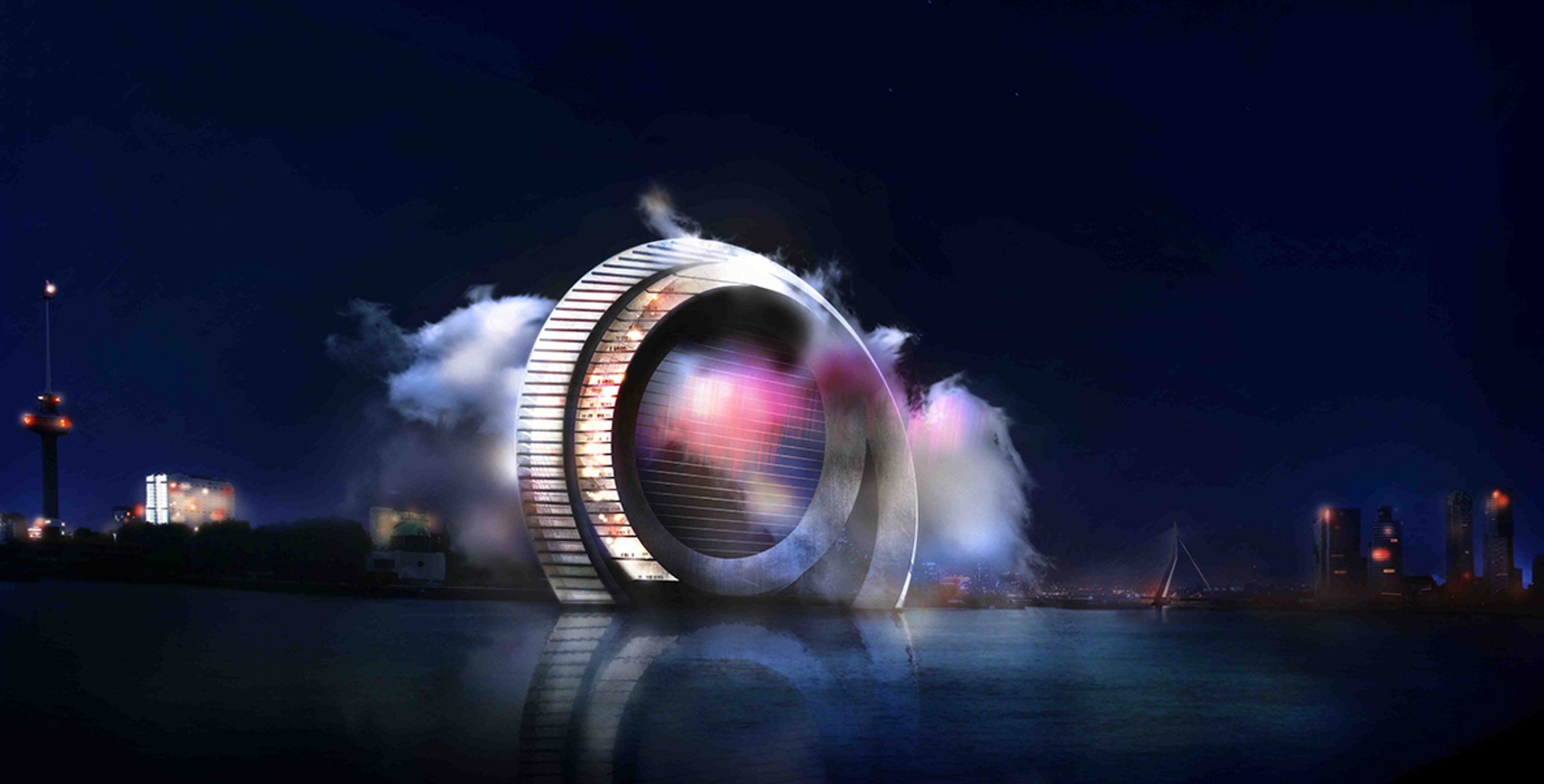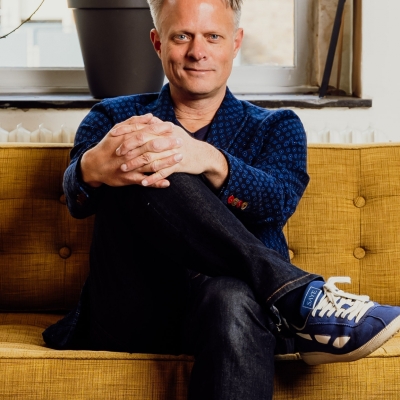Next Economy Field lab
Dutch Windwheel: Next Economy Field Lab
On September 22, at the request of the Rotterdam City Authorities, Rotterdam The Hague Metropolitan District has decided to contribute to the establishment of the Dutch Windwheel 'field lab'. The contribution will be utilised to boost the Dutch Windwheel innovation programme initiated by enterprises and knowledge institutes, and to test and apply product innovations resulting from the programme within the region.By mid-2015, Rotterdam businesses BLOC, DoepelStrijkers, and Meysters presented their plans for the Dutch Windwheel: a structure towering 174 metres above the streets of Rotterdam, consisting of two rings. The outer ring comprises a ‘coaster’, consisting of 40 cabins featuring integrated smart walls that present visitors with an unprecedented view of the cityscape and wider region. The inner ring accommodates residential estates, a hotel, and a skybar. The Dutch Windwheel, however, is more than a mere building. It serves as a grand display of sustainable, circular, technological innovation. Moreover, by application of cutting-edge solar, wind, and biomass technologies, some of which are yet to be developed, the Dutch Windwheel will serve as an inner city power generator.
The Dutch Windwheel aims to use highly advanced and efficient technological solutions, the majority of which are still in various stages of development. In lieu of this build-up, a collective of fifteen international and regional corporations and knowledge institutes have joined forces in a collaborative innovation programme spearheaded by BLOC. The collective consists of AM, Royal BAM Group, Deltares, DoepelStrijkers, Dura Vermeer, ECN, Eneco, Evides, Huawei, InnovationQuarter, Mammoet, Meysters, Siemens, SPE, and TNO. Over the next few years, a series of proofs of concepts will be established in order to test the innovations covering intelligence, digital, smart cities, energy, water, engineering, and technology.
This concerted effort has turned the Dutch Windwheel into a genuine field lab, speeding up the transition to the Next Economy. Regional authorities are embracing this ambition, which was demonstrated by the Rotterdam The Hague Metropolitan District’s gesture of allocating an amount of 181,500 euro to the founding of the field lab, at the request of the Rotterdam municipality. By its contribution, the district aims to accelerate the Dutch Windwheel innovation process, and in doing so, to add its share to overall development of innovation across the region. Simultaneously, preparations are underway to strike a Green Deal that will entice provincial and national authorities to contribute to the programme as well.
Design: Windwheel Corp / DoepelStrijkers, Rotterdam


